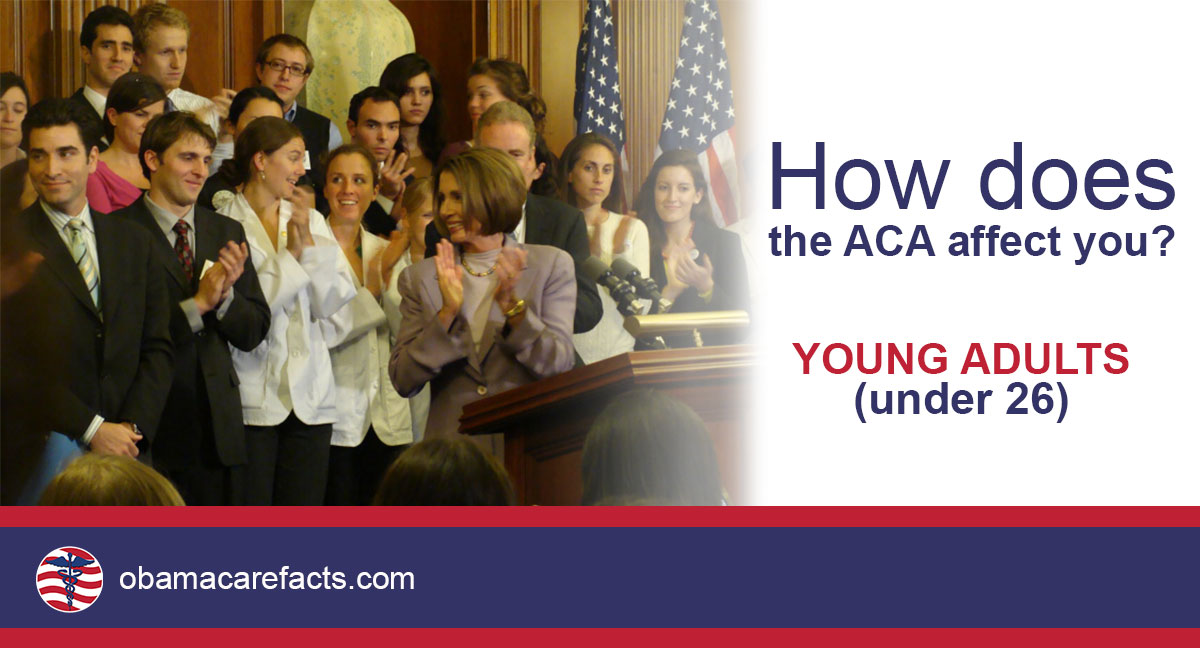ObamaCare Under 26: Rules for Children and Young Adults








Children can stay on their parent’s plan until 26; when they turn 26, they qualify for special enrollment. Additionally, many employers offer dependent coverage for young adults. Below is a comprehensive guide to the Affordable Care Act’s provisions for young adults under 26, ensuring they maintain access to health insurance coverage.
What the ACA Does for Young Adults and Children Under 26
The Affordable Care Act (ACA) includes several provisions that specifically benefit young adults and children under the age of 26:
- All marketplace and employer plans must offer pediatric dental and vision coverage for young adults under 19, although parents are not required to accept this coverage.
- Low-income young adults who file taxes with their parents may qualify for the Children’s Health Insurance Program (CHIP) in most states, even if their parents do not qualify for the marketplace. The typical cutoff age for CHIP is 19.
- Low-income young adults who do not file taxes with their parents may qualify for Medicaid based on income.
- Young adults can remain on their parent’s health insurance plans until they turn26.
- Large employers are required to offer dependent coverage to children under 26, although specific rules apply to TRICARE.
- Up to 82% of uninsured young people may qualify for either Medicaid or subsidies to purchase coverage through the Health Insurance Marketplace.
- Since 2013, young adults have experienced the largest increase in the rate of insured individuals, with uninsured rates among adults under 26 dropping by 46% by 2016 (HHS).
- Half of young single adults who are eligible to purchase health insurance on the marketplace could get covered for $50 or less, thanks to cost assistance, which is only available through your State’s Health Insurance Marketplace.
For further information, you can explore how ObamaCare helps young adults.
Can My Child Stay on My Health Plan?
Children can remain on a family health plan until they turn 26. However, once they reach their 26th birthday, they are no longer eligible for coverage through their parent’s private or employer-based health plan. Medicaid and CHIP eligibility varies based on other factors, such as age and income. Typically, CHIP covers those under 19, while Medicaid eligibility depends on whether a state has expanded the program. TRICARE has its own set of rules regarding dependent coverage.
What Happens When A Child Turns 26?
When a child turns 26, they must move off their parent’s health plan and enroll in their own health coverage. Most young adults can find low-cost coverage through the Health Insurance Marketplace, Medicaid, or may have coverage options through an employer or university.
Turning 26 and Special Enrollment
Turning 26 triggers a special enrollment period, which allows a young adult to sign up for a new plan. This enrollment period begins once they lose coverage and lasts for 60 days. To avoid a gap in coverage, it is advisable to enroll in a new plan before losing existing coverage. However, brief gaps may occur due to processing times.
Are Both Married and Unmarried Young Adults Covered?
Both married and unmarried young adults are eligible to stay on their parent’s health plan until 26. Marriage itself doesn’t disqualify them from this benefit, but it may impact their eligibility for marketplace cost assistance or Medicaid.
Are Dental and Vision Required to All Young Adults Under 26?
Dental and vision coverage is only required for children under 19 and not for those between 19 and 26.